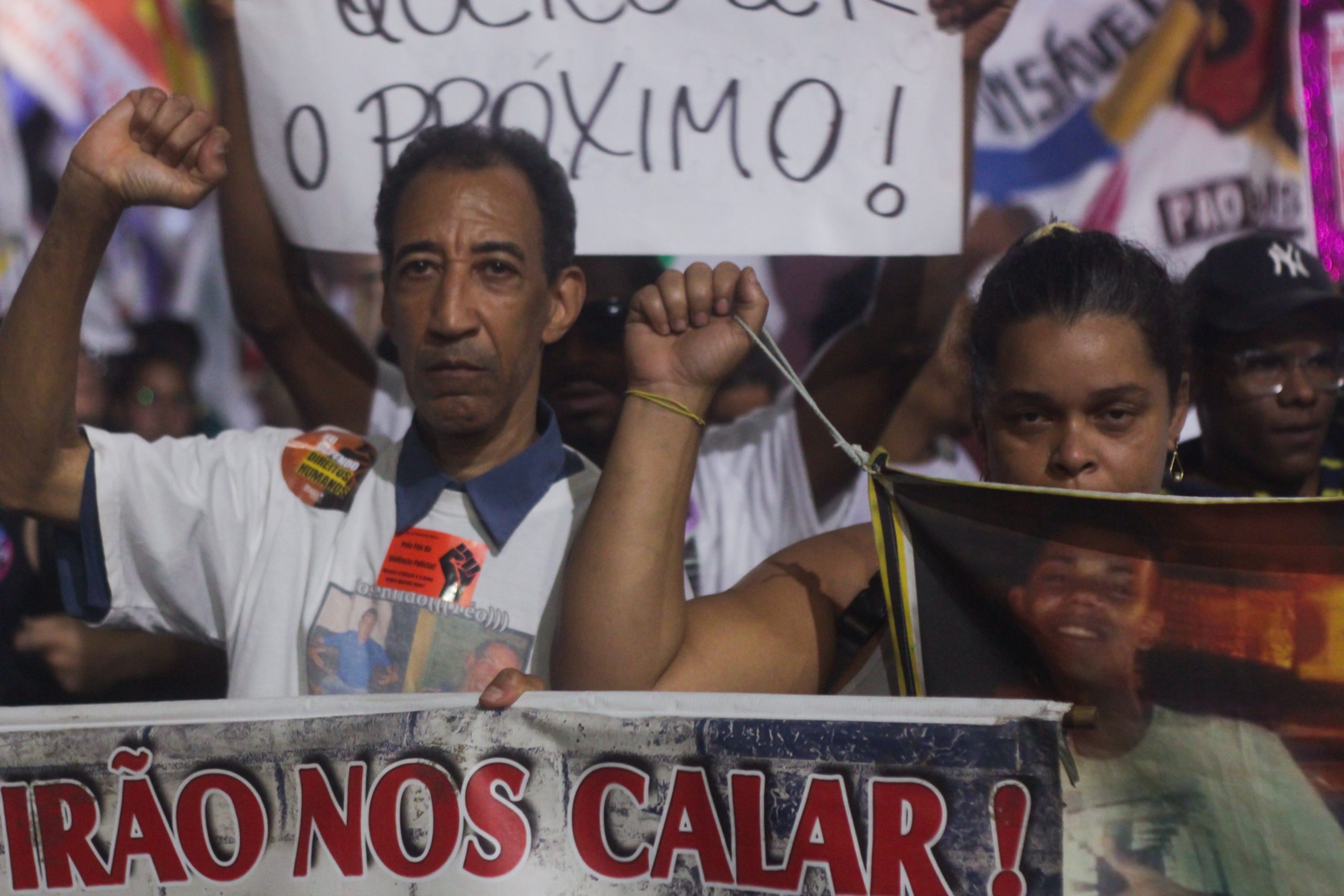
Clique aqui para Português
This article is part of RioOnWatch‘s series on Memories of Favela Power, which documents and celebrates the history of Rio de Janeiro’s favelas through narratives and reports from residents’ collective memory, in their daily struggle to lead fulfilling lives.
A case of police violence in the 1990s, which took place in the favela of Morro da Coroa, Catumbi, in central Rio de Janeiro, changed the life of Luciano Norberto dos Santos, better known as Cuca. He led the Morro da Coroa Residents’ Association, when, at the time, a 15-year-old youth was killed by the Rio de Janeiro Military Police (PMERJ).
“Dilamar’s case was the first to happen in Morro da Coroa, where I live. Her son was killed at just 15. At the time, I was director of the Residents’ Association. The case gained widespread attention because the boy was a student, only 15 years old, and was shot in the forehead by a sergeant from the Military Police. The officer then framed him, planting drugs and a gun on his body—the so-called ‘criminal kit’—to make it look like the kid was a criminal. That really outraged us. We got organized and took up the fight!” — Cuca
What Cuca did not expect was that, years later, his own brother, Josenildo dos Santos, then 42, would also be shot dead by the same Military Police. On April 2, 2009, dos Santos left the auto shop where he worked as an auto body technician and headed to a bar in Morro da Coroa to buy cigarettes when he was shot in the back of the neck with rifle rounds during a police operation. Since then, Cuca has tirelessly sought justice for his brother.
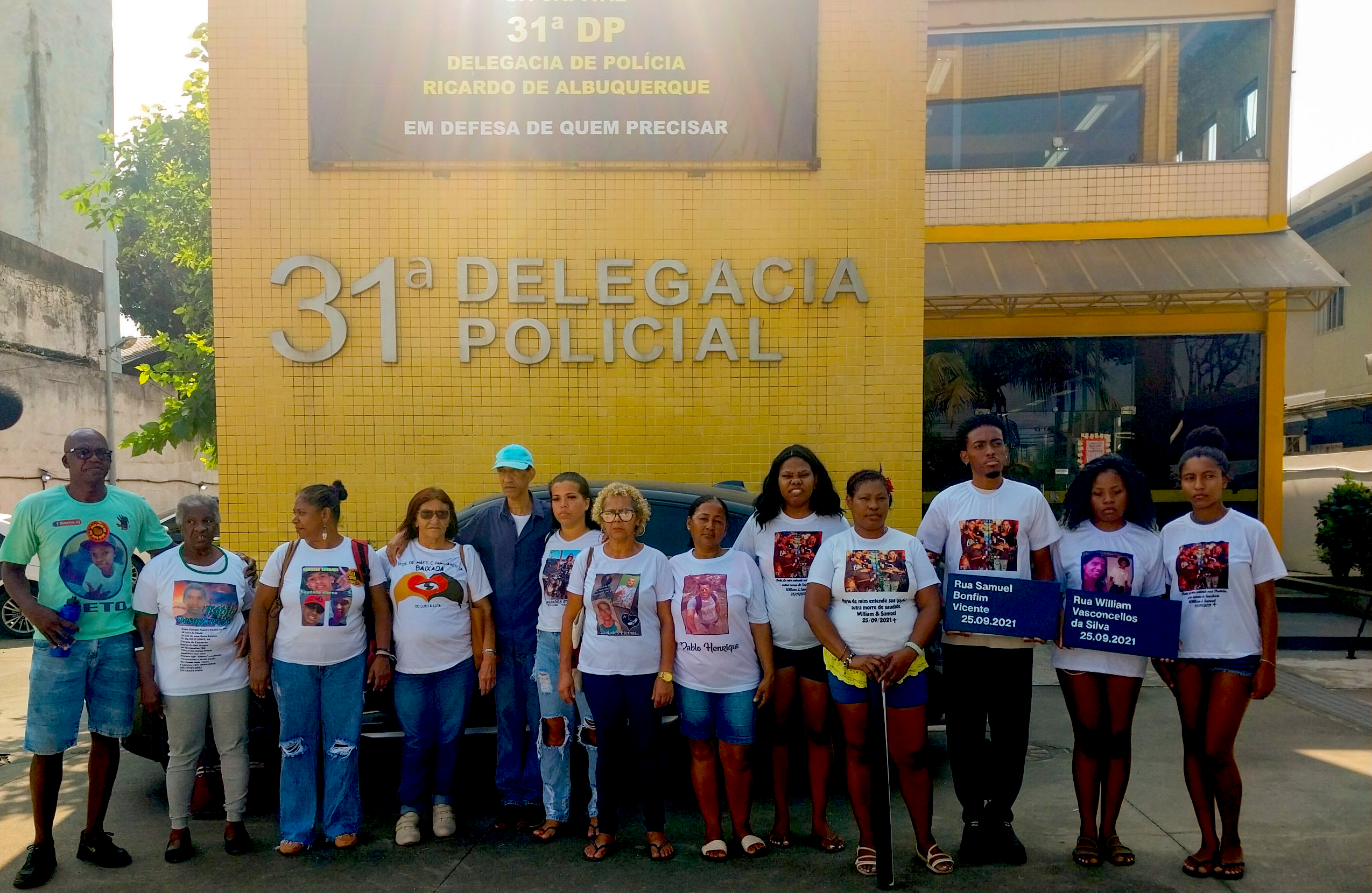
In 2023, after a 14-year wait, the police officers who killed his brother were sentenced to 54 years in prison. According to the Rio de Janeiro State Prosecutor’s Office (MP-RJ), the officers acted with “unnecessary violence, without any proof that they had been attacked during the raid.” The mobilization of the victims’ families was crucial in securing this outcome. Cuca, who lost his mother while waiting for justice, said:
“Before my mother died, I promised her that we would not rest until this case was solved and the culprits were held accountable. She always told us to keep supporting the struggle of the mothers of victims of State violence because, just as happened to my brother, it happens to many others!”
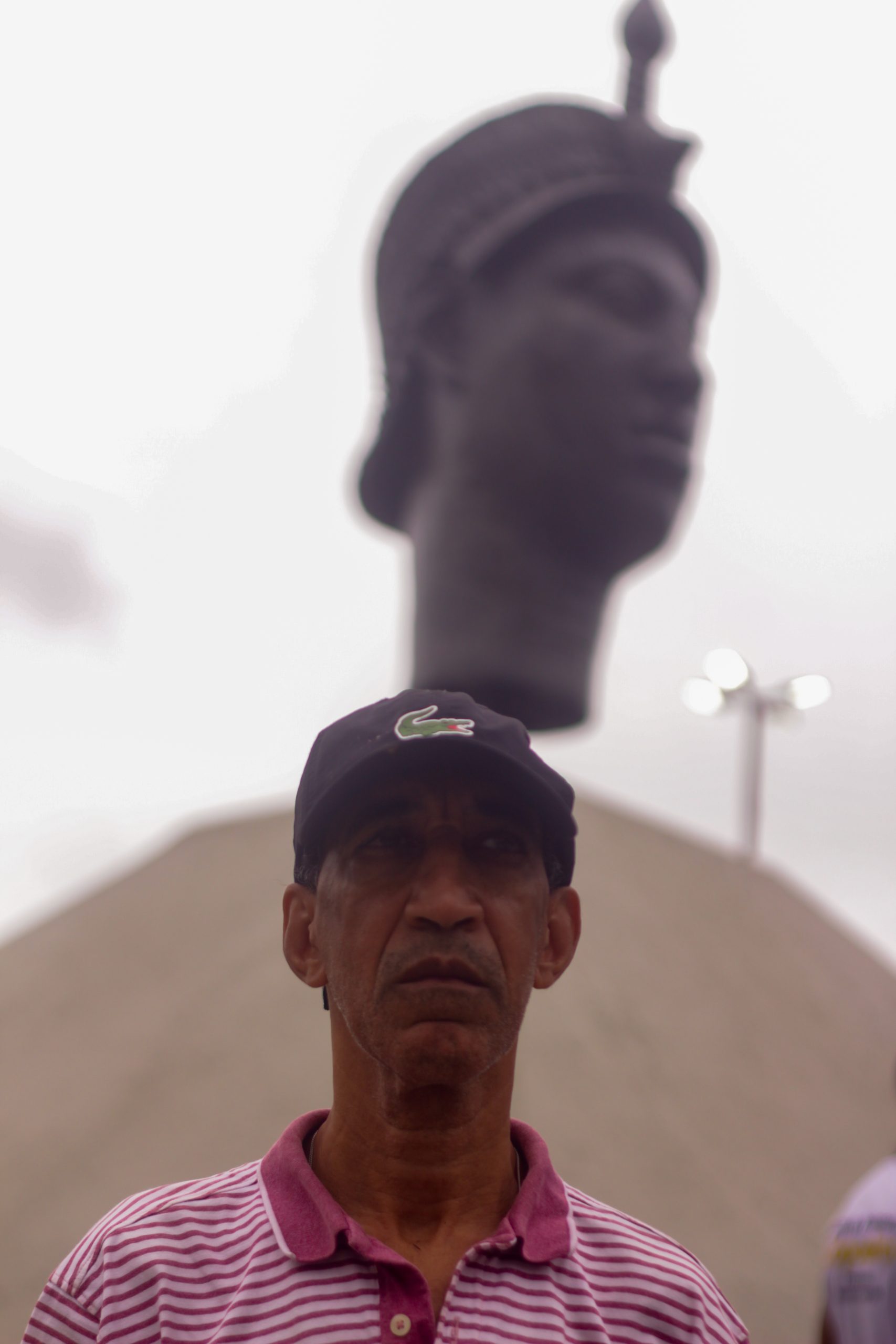
Cuca: A Human Rights Defender
Cuca is a calm, serene, and humble man, with unparalleled strength and resilience. A human rights defender who, over the years, has engaged in various causes. It is common to find him on the streets supporting different movements—whether standing with women, advocating for LGBTQIAPN+ rights, fighting against racism, or defending the right to housing. Cuca is always there.
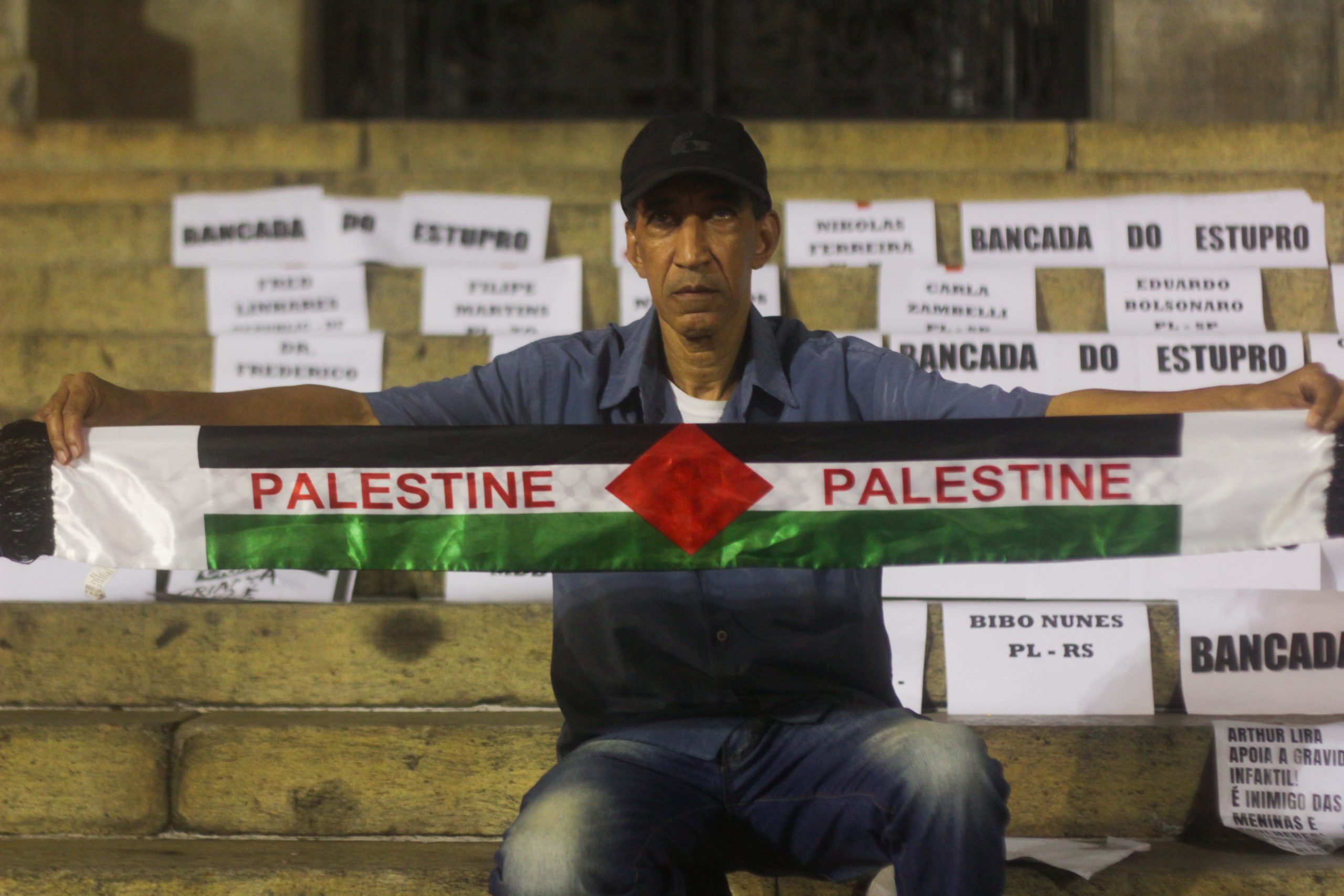
In 2018, a group of LGBTQIAPN+ activists organized to occupy the old Automobile Club building in Lapa, downtown Rio de Janeiro. The goal of the occupation was to persuade the city government to hand over the abandoned property to Casa Nem, providing shelter and support for LGBTQIAPN+ people in vulnerable situations.
Cuca arrived at the site with two architect friends who wanted to support the cause. The Municipal Guard and Military Police then showed up, prompting him to stay and call for support from human rights defense lawyers. At that moment, independent journalists covering the occupation found themselves unable to leave the building. However, Cuca spotted a window and, with the help of a ladder, assisted them in getting out. He remained at the occupation for another two weeks, until its final day, helping with negotiations to ensure that no occupants faced violence.
“They showed up with the official warrant, which was meant to kick everyone out, you know? They got there at 4am but didn’t come in. They stayed outside the door until 6:30am. Then they started knocking. That’s when I went and answered it.” — Cuca
Cuca was elected to the State Council for the Defense of Human Rights (CEDDH-RJ) in 2019 and served two two-year terms. As a CEDDH-RJ council member, he worked on hundreds of human rights violation cases.
“Cuca is one of the leading human rights advocates in the state of Rio de Janeiro. Despite being a victim of police violence [towards his family] himself, as a human rights council member, he defended human rights indiscriminately for everyone. In fact, I accompanied him to Military Police barracks to investigate allegations of human rights violations suffered by military personnel [within their own battalions]. Officers were forced to sleep on mattresses infested with bedbugs, in utterly degrading quarters, without toilets or proper changing rooms—where female officers had to change in front of male officers—clear violations of their basic human rights. Because of his relentless work, Cuca has become a key figure in human rights advocacy in the state of Rio de Janeiro.” — Rodrigo Mondego (public interest attorney and former CEDDH-RJ president)
Ver essa foto no Instagram
Actions in Support of the Movement of Relatives and Victims of State Violence
Cuca is a deeply engaged activist and plays a key role in coordinating various actions led by relatives of victims of State violence, ranging from public rallies to meetings with State institutions such as the Public Defenders’ Office and the Public Prosecutor’s Office.

During one of his actions, on September 19, 2023, he assisted the women’s collectives Bread and Roses and Mothers of Manguinhos in organizing an event at the State University of Rio de Janeiro (UERJ) to demand justice for the victims of State violence. During the event, dozens of plaques were presented in honor of the victims. Over 300 people attended the gathering in the university auditorium, including dozens of relatives of State violence victims.
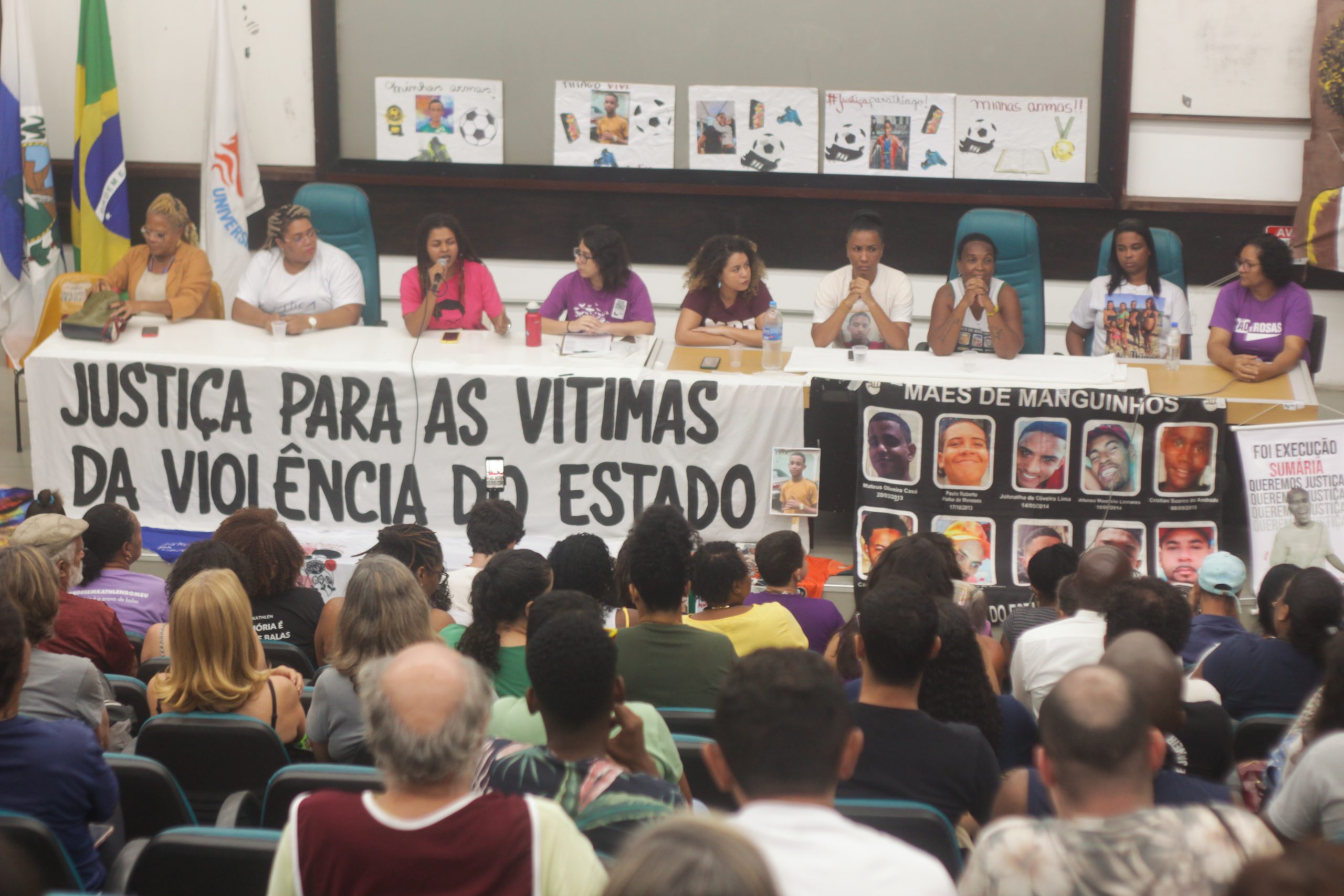
Councilwoman Monica Cunha, mother of Rafael da Silva Cunha—a 20-year-old youth who while fulfilling corrective measures at a juvenile detention facility was killed by Civil Police officer—highlighted that the victims and their relatives present at the event were also victims of structural racism. It is important to note that Cunha was founder of the Special Commission to Combat Racism, which later became a permanent body within Rio’s City Council.
Ana Paula Oliveira is also the mother of a victim of State violence. Her son, Johnathan de Oliveira Lima, was only 19 when he was killed by a shot fired by an officer from the Pacifying Police Unit (UPP) while returning from his grandmother’s home in the Manguinhos favela. She notes that Cuca has always been there throughout her struggle.
“I remember meeting Cuca within the movement of mothers and relatives of victims of State violence, as part of the Network Against Violence. He was always there, ready to embrace everyone, willing to listen to each family member, every person, lending a hand to all of us, always lifting us up. He is a great companion in this struggle, someone I am proud to walk alongside. Our fight is not an easy one, and hearing Cuca talk about losing his brother—and how that loss led to his mother’s illness and, eventually, to losing her as well—makes me reflect on my own daughter and on the role of siblings who lose a sibling to State violence. Beyond caring for us, he is deeply loved within the movement, highly respected, and admired for his unwavering dedication to this fight.” — Ana Paula Oliveira (founder of Mothers of Manguinhos, mother of a victim of State violence, human rights defender, and educator)
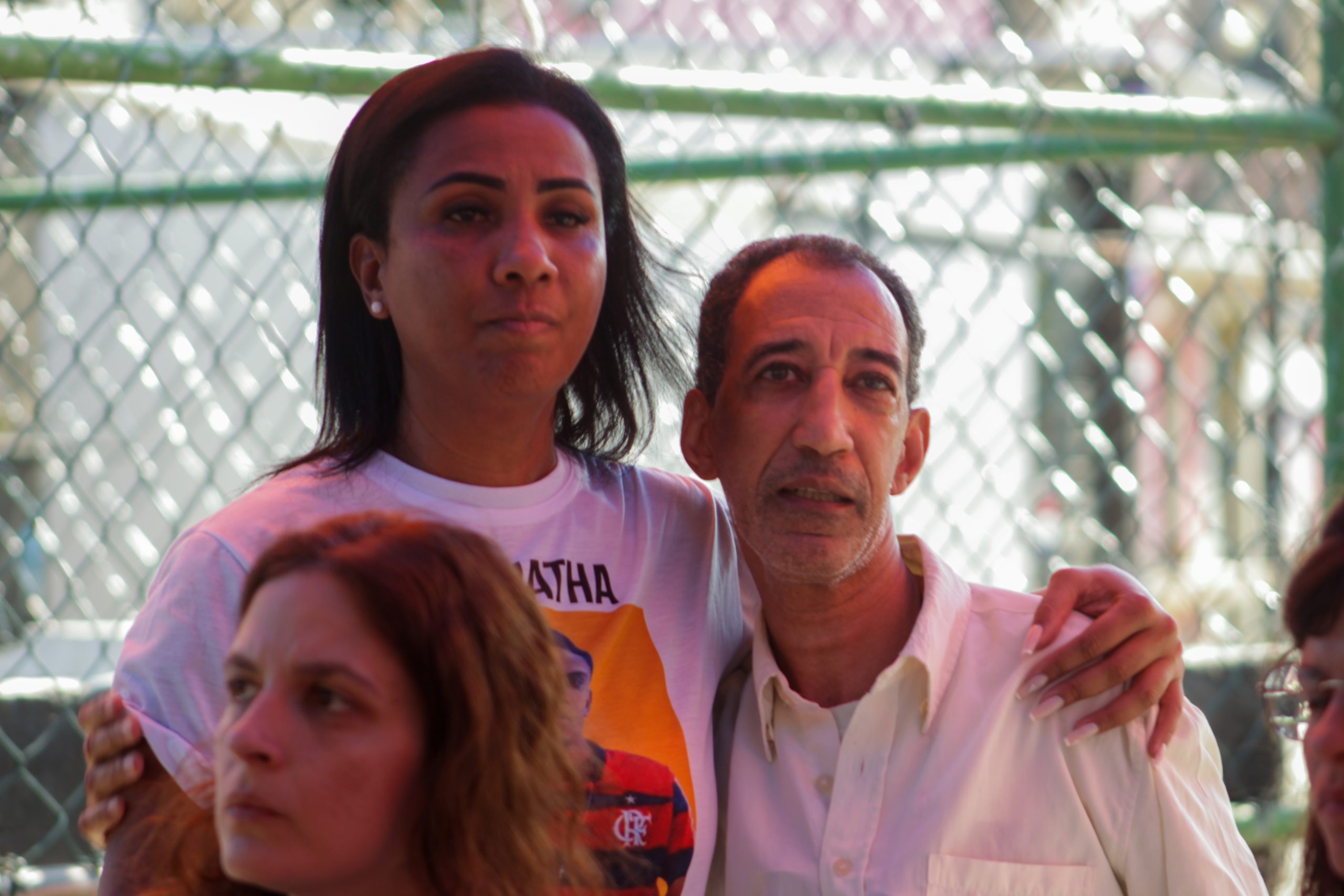
Cuca’s tireless work in the movement of relatives of victims of State violence is proof of how the fight for justice changes lives. His fearless stance and unwavering support, always ready to offer a shoulder in times of grief and mourning, have earned him deep respect and admiration from human rights defenders.
“Cuca is a tireless human rights defender. He has fought all these years not only for the case that victimized his brother, but also in support of other families, especially mothers who lost their children to State violence. He has been a crucial supporter for many families, closely following cases and being active in rallies, meetings, and in helping develop public policies. In short, his work encompasses protest, claims, and demonstrations, as well as participation in collectives and spaces dedicated to building access to rights.” — Guilherme Pimentel (former Ombudsman to the Public Defenders’ Office of Rio de Janeiro and current technical coordinator of the Network of Support and Attention to Victims of State Violence – RAAVE)
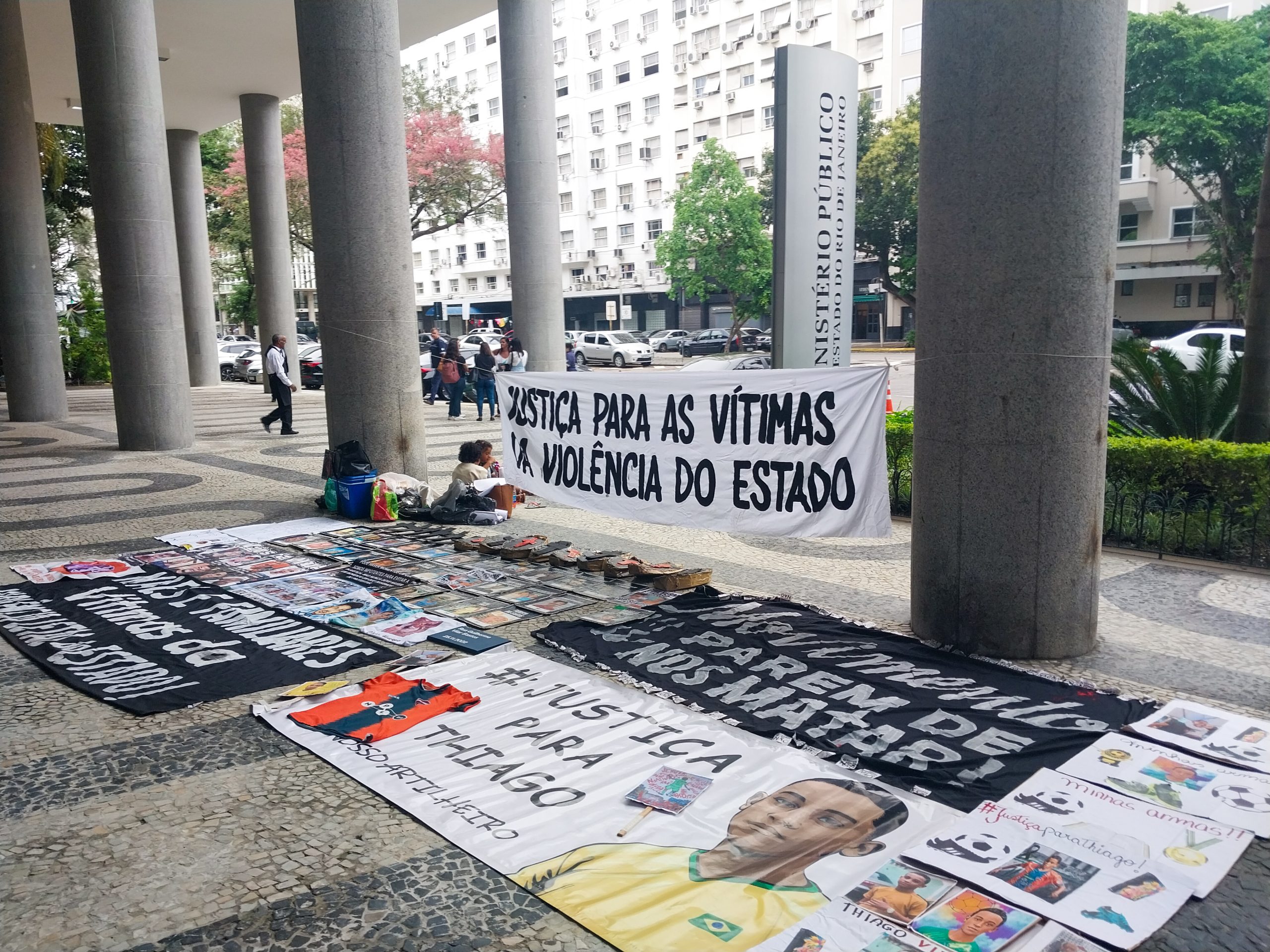
Cuca is the personification of grief turned into action. He is perhaps the most unexpected consequence of State violence. Like him, Monica Cunha, Ana Paula Oliveira, and hundreds of other relatives of victims of State violence find in the defense of human rights, even in moments of deep sorrow, a reason to carry on fighting for the memory and legacy of their loved ones murdered by the State.
About the authors:
Vinícius Ribeiro was born and raised in the West Zone of Rio, between Santíssimo and Realengo, and currently lives in Mangueira. Journalist, filmmaker and photographer, he is a member of the Fotoguerrilha Collective. He directed and wrote the short films Sobreviver, Dame Candole, Sob o Mesmo Teto, Entregadores, and On: Uberização o Que Você Não Vê about the Uberization and precarization of labor. He is currently working on a film project about street vendors in Rio de Janeiro.
Lucas Novello holds a degree in Journalism from Estácio de Sá University. A photographer and filmmaker, he was raised in the Morro da Babilônia favela and is a member of the Fotoguerrilha Collective, where he focuses on grassroots communication and photojournalism, covering demonstrations, cultural occupations, social movements, and housing struggles. In 2022, he served as director of photography and editor of the mini-doc “ON: Uberization – What You Don’t See,” directed by Vinícius Ribeiro. Additionally, he works as a freelance filmmaker.
